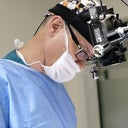What are the common medications prescribed right after rhinoplasty (I'm not a fan & take medicines rarely)?
I am not a fan of medicines/tablets and take them extremely rarely. Considering a rhinoplasty in the near future and have a low pain threshold. How many and what medicines should i expect to take after the surgery and for how long. thanks










